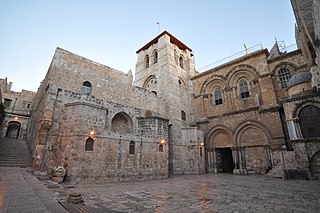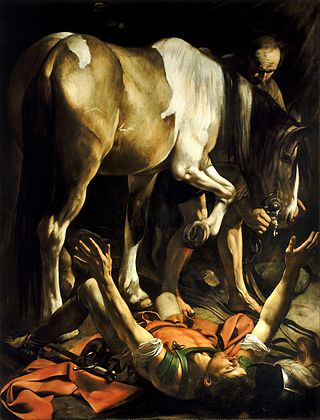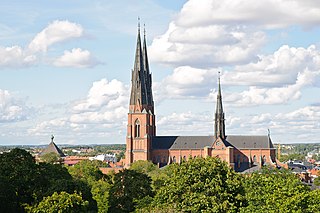
Christianity is an Abrahamic monotheistic religion based on the life and teachings of Jesus of Nazareth. It is the world's largest and most widespread religion with roughly 2.4 billion followers representing one-third of the global population. Its adherents, known as Christians, are estimated to make up a majority of the population in 157 countries and territories, and believe that Jesus is the Son of God, whose coming as the Messiah was prophesied in the Hebrew Bible and chronicled in the New Testament.
Nondenominational Christianity consists of churches which typically distance themselves from the confessionalism or creedalism of other Christian communities by not formally aligning with a specific Christian denomination. Many non-denominational churches have a congregationalist polity, which is self-governing without a higher church authority. This is not absolute of all non-denominational churches though, as elder-ruled non-denominational churches have grown quite recently within networks like Acts 29.
A megachurch is a church with an unusually large membership that also offers a variety of educational and social activities, usually Protestant, including Evangelical. The Hartford Institute for Religion Research defines a megachurch as any Protestant Christian church having 2,000 or more people in average weekend attendance. The megachurch is an organization type rather than a denomination.
A Christian denomination is a distinct religious body within Christianity that comprises all church congregations of the same kind, identifiable by traits such as a name, particular history, organization, leadership, theological doctrine, worship style and, sometimes, a founder. It is a secular and neutral term, generally used to denote any established Christian church. Unlike a cult or sect, a denomination is usually seen as part of the Christian religious mainstream. Most Christian denominations refer to themselves as churches, whereas some newer ones tend to interchangeably use the terms churches, assemblies, fellowships, etc. Divisions between one group and another are defined by authority and doctrine; issues such as the nature of Jesus, the authority of apostolic succession, biblical hermeneutics, theology, ecclesiology, eschatology, and papal primacy may separate one denomination from another. Groups of denominations—often sharing broadly similar beliefs, practices, and historical ties—are sometimes known as "branches of Christianity". These branches differ in many ways, especially through differences in practices and belief.

Mother church or matrice is a term depicting the Christian Church as a mother in her functions of nourishing and protecting the believer. It may also refer to the primary church of a Christian denomination or diocese, i.e. a cathedral or a metropolitan church. For a particular individual, one's mother church is the church in which one received the sacrament of baptism. The term has specific meanings within different Christian traditions. Catholics refer to the Catholic Church as "Holy Mother Church".

Christianity in China has been present since the early medieval period and it has gained a significant amount of influence during the last 200 years.

Eastern Orthodoxy, otherwise known as Eastern Orthodox Christianity or Byzantine Christianity, is one of the three main branches of Chalcedonian Christianity, alongside Roman Catholicism and Protestantism. Like the Pentarchy of the first millennium, the mainstream Eastern Orthodox Church is organised into autocephalous churches independent from each other. In the 21st century, the number of mainstream autocephalous churches is seventeen; there also exist autocephalous churches unrecognized by those mainstream ones. Autocephalous churches choose their own primate. Autocephalous churches can have jurisdiction (authority) over other churches, some of which have the status of "autonomous" which means they have more autonomy than simple eparchies.

The Lord's Day in Christianity is generally Sunday, the principal day of communal worship. It is observed by most Christians as the weekly memorial of the resurrection of Jesus Christ, who is said in the canonical Gospels to have been witnessed alive, raised from the dead, early on the first day of the week.
Religion is one of many recurring themes on the American animated television series The Simpsons. Much of the series' religious humor satirizes aspects of Christianity and religion in general. However, some episodes, such as "Bart Sells His Soul" and "Alone Again, Natura-Diddily", can be interpreted as having a spiritual theme. The show has been both praised and criticized by atheists, agnostics, liberals, conservatives and religious people in general for its portrayal of faith and religion in society. The show can function as a mediator of biblical literacy among younger generations of irreligious viewers.

Conversion to Christianity is the religious conversion of a previously non-Christian person that brings about changes in what sociologists refer to as the convert's "root reality" including their social behaviors, thinking and ethics. The sociology of religion indicates religious conversion was an important factor in the emergence of civilization and the making of the modern world. Conversion is the most studied aspect of religion by psychologists of religion, but there is still very little actual data available. Neurological studies have determined that conversion is not the result of pathology.

Religion in Wales has, over the years, become increasingly diverse. Christianity was the religion of virtually all of the Welsh population until the late 20th century, but it has rapidly declined throughout the early 21st century. Today a plurality (46.5%) of people in Wales follow no religion at all.

Religion in Sweden has, over the years, become increasingly diverse. Christianity was the religion of virtually all of the Swedish population from the 12th to the early 20th century, but it has rapidly declined throughout the late 20th and early 21st century.

The seventh-day Sabbath, observed from Friday evening to Saturday evening, is an important part of the beliefs and practices of seventh-day churches. These churches emphasize biblical references such as the ancient Hebrew practice of beginning a day at sundown, and the Genesis creation narrative wherein an "evening and morning" established a day, predating the giving of the Ten Commandments. They hold that the Old and New Testament show no variation in the doctrine of the Sabbath on the seventh day. Saturday, or the seventh day in the weekly cycle, is the only day in all of scripture designated using the term Sabbath. The seventh day of the week is recognized as Sabbath in many languages, calendars, and doctrines, including those of Catholic, Lutheran, and Orthodox churches.

Christianity is the most prevalent religion in the United States. Estimates from 2021 suggest that of the entire U.S. population about 63% is Christian. The majority of Christian Americans are Protestant Christians, though there are also significant numbers of American Roman Catholics and other Christian denominations such as Latter-day Saints, Orthodox Christians and Oriental Orthodox Christians, and Jehovah's Witnesses. The United States has the largest Christian population in the world and, more specifically, the largest Protestant population in the world, with nearly 210 million Christians and, as of 2021, over 140 million people affiliated with Protestant churches, although other countries have higher percentages of Christians among their populations. The Public Religion Research Institute's "2020 Census of American Religion", carried out between 2014 and 2020, showed that 70% of Americans identified as Christian during this seven-year interval. In a 2020 survey by the Pew Research Center, 65% of adults in the United States identified themselves as Christians. They were 75% in 2015, 70.6% in 2014, 78% in 2012, 81.6% in 2001, and 85% in 1990. About 62% of those polled claim to be members of a church congregation.
Rodney William Stark was an American sociologist of religion who was a longtime professor of sociology and of comparative religion at the University of Washington. At the time of his death he was the Distinguished Professor of the Social Sciences at Baylor University, co-director of the university's Institute for Studies of Religion, and founding editor of the Interdisciplinary Journal of Research on Religion.

Christianity is the predominant religion in Tonga, with Methodists having the most adherents.

Church attendance is a central religious practice for many Christians; some Christian denominations, such as the Catholic Church require church attendance on the Lord's Day (Sunday); the Westminster Confession of Faith is held by the Reformed Churches and teaches first-day Sabbatarianism, thus proclaiming the duty of public worship in keeping with the Ten Commandments. Similarly, The General Rules of the Methodist Church also requires "attending upon all the ordinances of God" including "the public worship of God". The Lutheran Christian theologian Balthasar Münter stated that church attendance is the "foundation for the Christian life" as "the Christian Bible and the sacraments provide the framework for the faith"; he also states that it is important for believers because it aids in the prevention of backsliding, as well as offers "the company of other believers". Until 1791, the government of the United Kingdom required attendance at church services of the Church of England at least twice a year.
The evangelical Lausanne Movement defines a nominal Christian as "a person who has not responded in repentance and faith to Jesus Christ as his personal Saviour and Lord"...[he] "may be a practising or non-practising church member. He may give intellectual assent to basic Christian doctrines and claim to be a Christian. He may be faithful in attending liturgical rites and worship services, and be an active member involved in church affairs." American Reformed theologian Douglas Wilson disagrees with the category of "nominal Christian" and argues that all who are baptized enter into a covenant with God, and are obliged to serve him; there is, therefore, "no such thing as a merely nominal Christian any more than we can find a man who is a nominal husband". There are, however, "wicked and faithless Christians."
The predominant religion of Nagaland is Christianity. The state's population is 1,978,502, as of 2011, out of which 87.93% are Christians. The 2011 census recorded the state's Christian population at 1,745,181, making it, with Meghalaya, Arunachal Pradesh, and Mizoram as the four Christian-majority states in India. The state has a very high church attendance rate in both urban and rural areas. Huge churches dominate the skylines of Kohima, Chümoukedima, Dimapur and Mokokchung.
Cafeteria Christianity is a derogatory term used by some Christians, and others, to accuse other Christian individuals or denominations of selecting which Christian doctrines they will follow, and which they will not.










